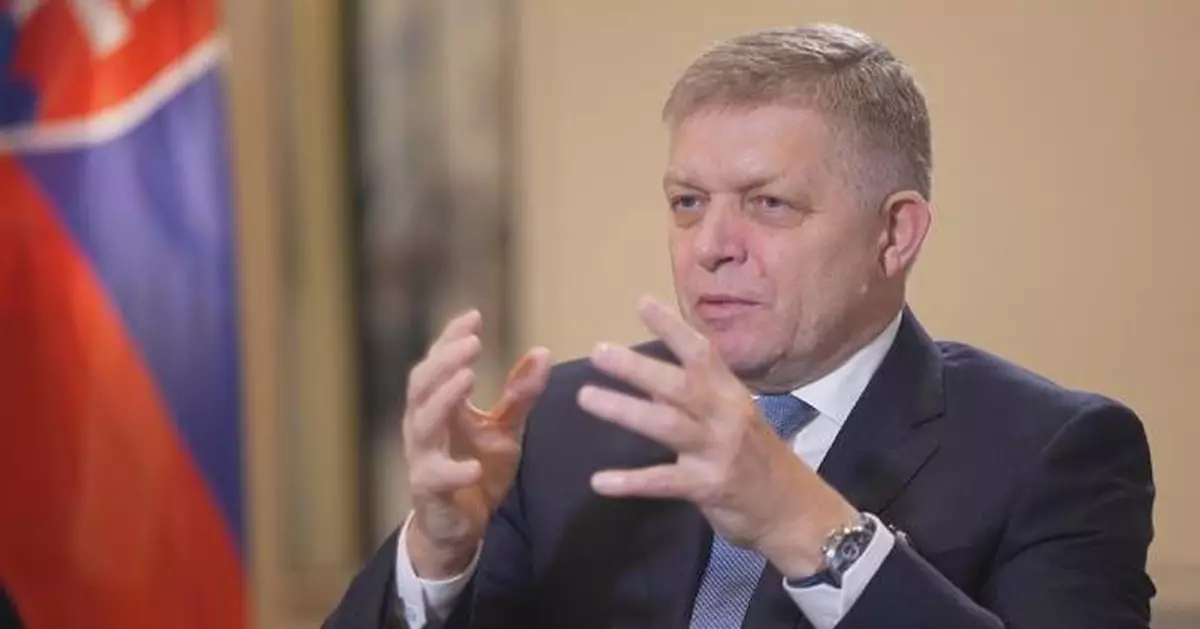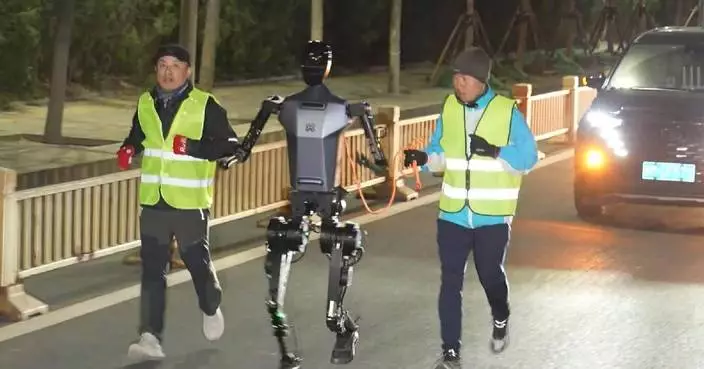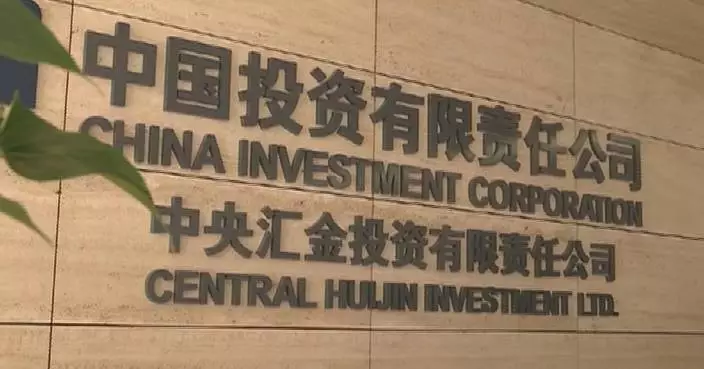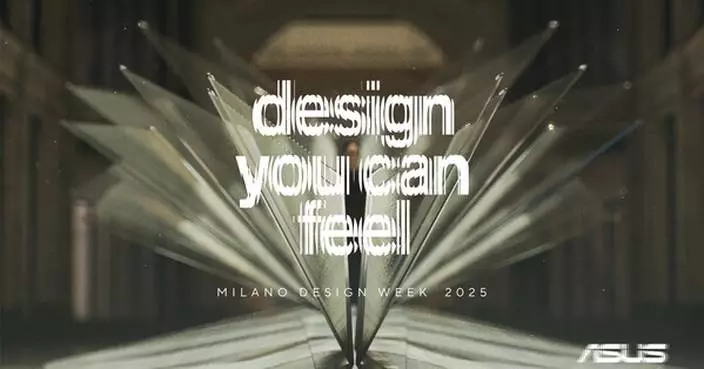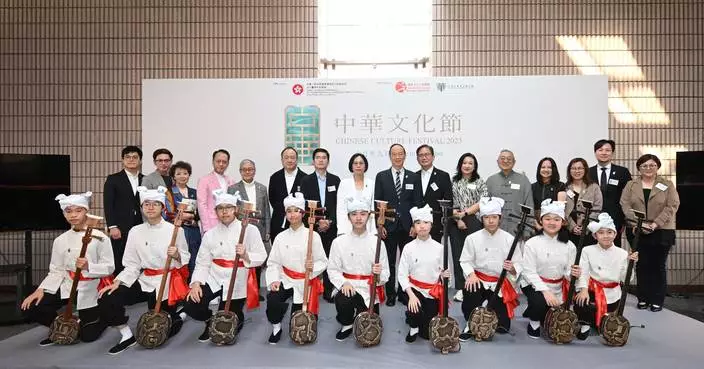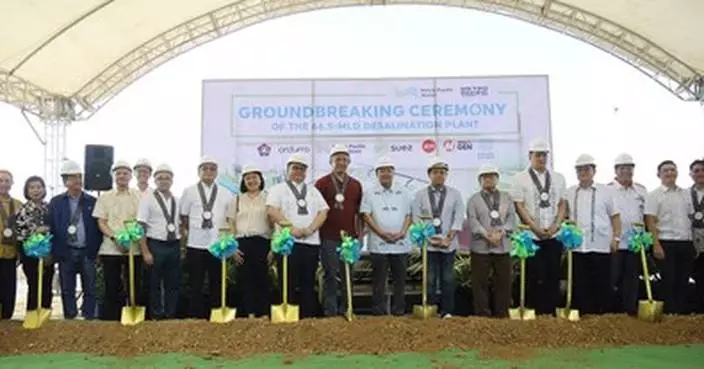It is impossible for Europe to compete with China in the field of electric vehicle (EV) by setting various administrative barriers, said Slovak Prime Minister Robert Fico on Friday in an interview with China Media Group.
Fico paid an official visit to China from Oct 31 to Nov 5. During the visit, he visited a leading global player in battery technology and energy solutions in Hefei City of east China's Anhui Province.
During the visit to the factory, representatives of Slovak enterprises showed interest in establishing joint ventures with Chinese battery makers in Slovakia to enhance bilateral cooperation in the field.
Speaking with CMG following his visit to China, Fico acknowledged China's advantages in the field of EV, while expressing his disagreement with the Europe Union (EU)'s imposition of additional tariffs on Chinese EVs.
"Europe is envious of the significant progress China has made in the field of electric vehicles, particularly in the production of electric vehicle batteries. My response is that it is impossible to compete with China in this field by setting various administrative barriers. Perhaps it's because our goals are different, but I’m not sure what other factors there might be. We should focus on making our products affordable and high quality, as that's the only way to be competitive," said Fico.
Located in the heart of Europe, Slovakia boasts a unique geographical position that has made it a central hub for automotive production in Europe, as well as the highest per capita automobile production in the world. Many well-known global automotive groups have invested and set up factories in Slovakia.
With global EV industry experiencing a rapid development and the EU implementing stricter emissions standards, Slovakia is also pushing for a green transition of its auto industry.

It is impossible for Europe to compete with China in EV by setting administrative barriers: Slovak PM
A Brazilian national who was deported by the United States in January this year recounted the discriminatory and inhumane treatment he encountered during the repatriation in an interview with China Central Television (CCTV).
Jefferson Faustino was among the 88 deported Brazilians sent by a charter flight from the U.S. to Manaus, a city in northern Brazil, on Jan 24.
During dozens of hours of flight, they were handcuffed, shackled, and denied food and bathroom, and they almost lost their lives to an air conditioning fault, according to Faustino.
"They gave us water in very small bottles on the plane. And I couldn't drink it, because my hands were cuffed to the waist chain. So I had to bend down hard and squash the bottle to spray water into my mouth, because otherwise I wouldn't be able to reach the water at all. Even by doing so, I couldn't get water. When I squeeze the bottle, the water sprayed out and soaked me all over. In the 48 hours of repatriation, they distributed food only one time. It was a spoiled sandwich. The sandwich they gave turned purplish color. I was starving. What could I do? I had to eat," Faustino said.
"In the 48 hours of repatriation, they distributed food only one time. It was a spoiled sandwich. The sandwich they gave me was purple. I was starving. What could I do? I had to eat," he added.
Meanwhile, the American crew enjoyed fresh food and water, Faustino told CCTV.
"No, they had very good food. Every meal, they went over there to heat up box lunches and drink water. The cabin cabinets were full of lunch boxes, full of food, but they didn't give us that food," he said.
The Brazilian deportees protested the unfair treatment and asked for the food and water, but they were not given a response, because of the language barrier, Faustino recalled.
"Yes, we asked. We spoke loudly to them, but the crew didn't speak Portuguese or Spanish, only English. It's a humiliation to us the Brazilians, because we didn't have food and couldn't use the bathroom. The children were crying," he said.
After the plane arrived in Manaus, the air conditioning system broke down and the crew got off the plane, leaving the deportees suffocating in the enclosure.
"People couldn't breathe. The cabin was out of air. I managed to open an emergency exit door and shouted to the police: 'Help! Help! Help!' I yelled for help, asking them to come and save us, because I thought I was dying, I was dying," Faustino said.
The Brazilian government deemed this treatment "degrading" and "unacceptable", with the country's foreign ministry summoning the charge d'affaires of the U.S. Embassy to request an explanation over the issue on Jan 26.
"The U.S. government should be held accountable. Why didn't they train these people responsible for transporting deportees. Since the Trump administration came to power, it has created conflicts in American society and adopted policies that are completely against democracy and public opinion, disrupting relations between the U.S. and its economic and political partners," said Rinaldo Leal, a Brazilian lawyer.
U.S. President Donald Trump signed on his inauguration day an executive order that called for mass deportations of undocumented migrants. Since then, raids and deportations of undocumented migrants, especially those from Latin America, have continued to ramp up.

Brazilian deportee recounts inhumane treatment during flight from US

Brazilian deportee recounts inhumane treatment during flight from US



